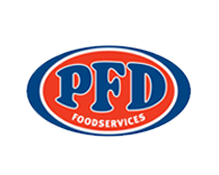Heuristic Search
Heuristic search: Heuristic search is a type of algorithm that is used to find the best solution to a problem by using a heuristic, or rule of thumb.
The ability to process information quickly and efficiently is a key factor in the success of many modern algorithms. Heuristic search has been used for centuries as an effective tool for finding solutions to complex problems. It involves applying principles from mathematics, computer science, and artificial intelligence to find optimal or near-optimal solutions for particular types of problems. This article will discuss how heuristic search works and its applications in various fields.
Heuristics are rules of thumb that can be used to make decisions and solve problems. They are often based on experience or intuition rather than scientific methods. By leveraging these simple but powerful concepts, heuristic searches can seek out potential answers faster than traditional approaches such as brute force searching or exhaustive enumeration. In addition, they give more control over what type of solution is desired since they allow users to define parameters and preferences to guide the search towards specific outcomes.
Heuristic search also provides an efficient way to explore large problem spaces with limited resources. Its flexibility allows it to handle different kinds of tasks including optimisation, game playing, scheduling, routing, planning, constraint satisfaction problems, and others. With these advantages combined with its low computational complexity compared to alternative approaches like AI techniques, heuristic search has become a popular choice among researchers looking for new ways to tackle difficult challenges.
What Is Heuristic Search With Example?
Heuristic search is a type of problem-solving algorithm that uses heuristic functions to guide the exploration of possible solutions. A heuristic function is an approximation or estimation used as a way to find better, more efficient solutions faster than exhaustive searches through all possible combinations. The primary benefit of using heuristics in decision making and problem solving is its ability to significantly reduce computing power needed for complex problems by quickly focusing on promising areas within search spaces.
A heuristic search algorithm typically involves constructing a search tree with specific nodes representing potential actions and states, then evaluating each node against certain criteria such as cost or time efficiency. From this evaluation process, the algorithm makes decisions regarding which action or state should be followed next. Various types of algorithms can be used in order to efficiently explore these search trees and choose appropriate strategies, including best-first searches, depth-first searches and breadth-first searches. Each method has its own advantages depending upon the nature of the problem being solved.
In some cases however, due to the size and complexity of the search space involved it may be necessary to employ multiple different heuristic methods when attempting to solve a particular problem. For example, if one approach results in only partial success then another can be applied which might yield more successful outcomes from further exploration of other branches within the search tree structure. Ultimately, selecting the most suitable combination of techniques for any given situation will depend upon understanding factors like computational costs versus accuracy gains associated with various approaches.
What Is An Example Of A Heuristic Algorithm?
Heuristic search is a type of problem-solving approach that uses mental shortcuts to find solutions quickly. This method relies on decision making based on experience or intuition, as opposed to systematic analysis or calculation. Heuristic algorithms are used to solve complex problems in computer science such as the travelling salesman problem, and most commonly employ best first search and hill climbing strategies.
Best First Search (BFS) is a heuristic algorithm which seeks out paths that lead closer to the goal state step by step from an initial state. It searches through all possible routes until it finds one with the least cost associated with it. Hill Climbing is another popular heuristic algorithm which involves gradually changing parameters of an initial solution until it reaches a local maximum value - this can be thought of like taking small steps up a steep mountain slope without falling back down: each step must take you higher than before for progress to continue being made. Simulated Annealing Algorithms use randomness when searching for optimal solutions, allowing them to escape local maxima just like real life objects heated and cooled slowly do not suffer from crystallisation issues due to temperature changes.
Heuristics play an important role in improving the speed of finding solutions compared to more traditional methods, such as breadth first search algorithms, where every path has to be explored thoroughly before any conclusions can be drawn about what route might offer the most efficient outcome. By utilising mental shortcuts during decision making processes, time spent discovering proper pathways can be greatly reduced while still providing accurate results given certain conditions are met along the way.
What Is Heuristic Approach In AI?
A heuristic approach in AI is a way of problem-solving that employs intelligent strategies to find solutions. It seeks the most optimal solution but does not guarantee it, instead opting for the best available option at any given time. Heuristics can be used in many Artificial Intelligence (AI) applications such as game playing and robotics.
The most common types of heuristic search include: breadth first, uniform cost search, depth first search, recursive best first search, exhaustive search, graph search, iterative deepening search, memory restricted search and parallel search. Each type has its own set of advantages and disadvantages when searching for a solution to a particular problem. For example, breadth-first searches are great for finding an answer quickly but may not always return the optimal solution; whereas depth-first searches tend to take longer but often yield better results.
Heuristic algorithms have been instrumental in helping AI systems solve problems efficiently and effectively by providing more efficient ways of evaluating potential solutions than traditional approaches like brute force or exhaustive methods. Heuristics also help reduce the amount of resources required to complete tasks since they involve only exploring promising areas rather than checking every possible route or combination. Additionally, they allow machines to make decisions based on experience rather than relying solely on data processing rules which can lead to more accurate outcomes.
What Is Heuristic Technique?
Heuristic techniques are a type of problem-solving and decision-making process used in Artificial Intelligence (AI) systems. Heuristics involve the use of an objective function that determines which options should be given priority when solving a particular problem. This is done by creating a data structure such as a priority queue, where elements with higher values take precedence over those with lower values. Additionally, heuristic search algorithms employ cognitive biases and Kahneman’s fast/slow thinking to make decisions based on predetermined criteria or evaluation functions.
For example, many AI applications use genetic algorithms for optimisation problems, whereby ‘good’ solutions are identified and selected from among available alternatives through repeated cycles of evaluation and selection functions. Similarly, shortest path algorithms can identify the best route from one point to another by considering factors like distance, cost, speed limit or environmental constraints. Furthermore, heuristics can also be used to solve complex problems; this involves breaking down each task into smaller parts and applying different strategies depending on the objectives at hand.
When applied correctly, heuristics provide AI systems with powerful tools to quickly iterate towards optimal solutions without having to examine every single possible outcome. As a result, they enable more efficient problem solving than traditional methods alone could ever hope to achieve while helping avoid costly mistakes caused by human bias or error.
What Are The 3 Types Of Heuristics?
Heuristic search is a type of search process used in problem-solving. It involves using previously known information to reduce the amount of searching that needs to be done for an optimal solution. Heuristics come in three main types:
- external explicit graph search,
- parallel external search
- and search value iteration.
External explicit graph search follows a sequence of steps or nodes until it finds the solution. During this procedure, it searches through each node, evaluating them based on their cost or utility values associated with them, before selecting the best one. This method works well when there are only a few solutions available and when the complexity of the search space can be simplified by breaking down into smaller parts.
Parallel external search splits up the core collections of data into multiple processors which are then distributed over different computers or servers in order to speed up processing time. The same basic operations occur as in regular external explicit graph search but since they’re being performed simultaneously instead of sequentially, results can be obtained much faster. Search value iteration is a combination of both methods; it uses an initial node and iterates through its associated costs and utilities for every other node connected within its vicinity. This allows for more efficient use of resources and thus quicker results than if each step was evaluated separately.
TIP: When looking for an optimal solution to a problem, heuristic searches provide effective ways to cut down on processing times without sacrificing accuracy due to its distribution capabilities from core collection distributions and evaluation processes from initial nodes throughout all related nodes found in any given vicinity.
Conclusion
Heuristic search is an important aspect of Artificial Intelligence that has been used to solve complex problems. It involves the use of heuristics; strategies or methods which are applied in a problem-solving context and can be seen as rules of thumb. A heuristic algorithm is one example, wherein different parameters such as cost, risk and efficiency are used to guide the selection process in solving a given problem. Heuristic approach in AI provides an efficient way of tackling issues where limited resources are available, while heuristic technique focuses on simplifying complex sets of data by looking at patterns and trends within it. Furthermore, there are three main types of heuristics: Algorithmic Heuristics, Informational Heuristics and Adaptive Heuristics - each with its own unique characteristics.
Overall, heuristic search offers a powerful tool for Artificial Intelligence practitioners when faced with difficult tasks involving large datasets or multiple variables. Its ability to simplify complex information into understandable pieces makes it invaluable for decision makers who need quick yet reliable solutions. Additionally, its flexibility allows users to adapt their strategies depending on the situation they face - resulting in more accurate results than traditional approaches would have achieved alone. In conclusion, heuristic search remains a valuable asset for those seeking rapid yet dependable answers from challenging problems.
Complexica team published a number of books and articles on heuristics - please visit our Publications page to learn more.
PREVIOUS NARROW AI GLOSSARY TERM
NEXT NARROW AI GLOSSARY TERM
Heuristic Search Definition
Exact match keyword: Heuristic Search N-Gram Classification: Heuristic Algorithm, Heuristic Optimization Substring Matches: Heuristic, Search Long-tail variations: "Heuristic Algorithm", "Heuristic Optimization" Category: Computing Search Intent: Information, Research Keyword Associations: Artificial Intelligence, Machine Learning, Neural Networks Semantic Relevance: Artificial Intelligence, Machine Learning, Neural Networks, Genetic Algorithms Parent Category: Computing Subcategories : Artificial Intelligence, Machine Learning, Neural Networks Synonyms : Artificial Intelligence, Machine Learning, Neural Networks Similar Searches : Artificial Intelligence Algorithms , Evaluative Search Techniques , Goal-directed Search Technique , Biased Randomized Hill Climbing , Iterated Local Search . , Greedy Best First search . , Evolutionary Computation . Intention Recognition . Logic Programming . Natural Language Processing. Neurodynamics . Simulated Annealing . Stochastic Local Search . Reinforcement Learning Geographic Relevance : Global Audience Demographics : Data Scientists, Business Professionals , Developers , AI and ML Specialists Brand Mentions : Google AI Platform , Amazon Web Services (AWS) SageMaker Microsoft Azure IBM Watson Studio NVIDIA DGX AI SuperPOD. Apple Core ML Facebook Open Source AI projects OpenAI Platform TensorFlow AWS DeepLens Jupyter Notebook Apache Spark on Databricks Weka Toolkit H2O Driverless AI Torch. ScikitLearn MATLAB Toolboxes DeepMind Technologies IBM Watson Industry-specific data :Heuristics for Planning and Scheduling Modeling and Simulation Automated Planning and Scheduling. Measurement of Solution Quality. General Problem Solving Strategies. Expert Systems design methods Management of Uncertainty in decision making. Robotics applications Computer vision algorithms Network optimization problems Game Theory Tools Natural Language Processing Commons used modifiers :“Intelligent” “AI powered” “Data Driven”Topically relevant entities :Artificial Intelligence(AI),Machine learning(ML),Neural networks(NN),Genetic algorithms (GA) Knowledge Representation & Reasoning System(KRR) Probabilistic Reasoning (PR). Swarm algorithms Domain Specific heuristics Pathfinding & Exploration Constraint Satisfaction Problems(CSPs) Link Mining & Network Analysis Content Filtering & Recommendation"Larry will be our digital expert that will enable our sales team and add that technological advantage that our competitors don't have."
Kerry Smith
CEO, PFD Foods
$1.6 billion in revenue 
"Lion is one of Australasia’s largest food and beverage companies, supplying various alcohol products to wholesalers and retailers, and running multiple and frequent trade promotions throughout the year. The creation of promotional plans is a complicated task that requires considerable expertise and effort, and is an area where improved decision-making has the potential to positively impact the sales growth of various Lion products and product categories. Given Complexica’s world-class prediction and optimisation capabilities, award-winning software applications, and significant customer base in the food and alcohol industry, we have selected Complexica as our vendor of choice for trade promotion optimisation."
Mark Powell
National Sales Director, Lion
"At Liquor Barons we have an entrepreneurial mindset and are proud of being proactive rather than reactive in our approach to delivering the best possible customer service, which includes our premier liquor loyalty program and consumer-driven marketing. Given Complexica’s expertise in the Liquor industry, and significant customer base on both the retail and supplier side, we chose Complexica's Promotional Campaign Manager for digitalizing our spreadsheet-based approach for promotion planning, range management, and supplier portal access, which in turn will lift the sophistication of our key marketing processes."
Richard Verney
Marketing Manager
Liquor Barons

"Dulux is a leading marketer and manufacturer of some of Australia’s most recognised paint brands. The Dulux Retail sales team manage a diverse portfolio of products and the execution of our sales and marketing activity within both large, medium and small format home improvement retail stores. We consistently challenge ourselves to innovate and grow and to create greater value for our customers and the end consumer. Given the rise and application of Artificial Intelligence in recent times, we have partnered with Complexica to help us identify the right insight at the right time to improve our focus, decision making, execution, and value creation."
Jay Bedford
National Retail Sales Manager
Dulux

"Following a successful proof-of-concept earlier this year, we have selected Complexica as our vendor of choice for standardizing and optimising our promotional planning activities. Complexica’s Promotional Campaign Manager will provide us with a cloud-based platform for automating and optimising promotional planning for more than 2,700 stores, leading to improved decision-making, promotional effectiveness, and financial outcomes for our retail stores."
Rod Pritchard
Interim CEO, Metcash - Australian Liquor Marketers
$3.4 billion in revenue 
"After evaluating a number of software applications and vendors available on the market, we have decided to partner with Complexica for sales force optimisation and automation. We have found Complexica’s applications to be best suited for our extensive SKU range and large set of customers, being capable of generating recommendations and insights without burdening our sales staff with endless data analysis and interpretation.
Aemel Nordin
Managing Director, Polyaire
"DuluxGroup is pleased to expand its relationship with Complexica, a valued strategic partner and supplier to our business. Complexica’s software will enable DuluxGroup to reduce the amount of time required to generate usable insights, increase our campaign automation capability, personalise our communications based on core metrics, and close the loop on sales results to optimise ongoing digital marketing activity."
James Jones
Group Head of CRM, DuluxGroup
"Instead of hiring hundreds of data scientists to churn through endless sets of data to provide PFD with customer-specific insights and personalised recommendations, Larry, the Digital Analyst® will serve up the answers we need, when we need them, on a fully automated basis without the time and manual processes typically associated with complex analytical tasks.”
Richard Cohen
CIO, PFD Foods
$1.6 billion in revenue 
"As a global innovator in the wine industry, Pernod Ricard Winemakers is always seeking ways to gain efficiencies and best practices across our operational sites. Given the rise of Artificial Intelligence and big data analytics in recent times, we have engaged Complexica to explore how we can achieve a best-in-class wine supply chain using their cloud-based software applications. The engagement is focused on Australia & New Zealand, with a view to expand globally."
Brett McKinnon
Global Operations Director, Pernod Ricard Winemakers
"70% - 80% of what we do is about promotional activity, promotional pricing -- essentially what we take to the marketplace. This is one of the most comprehensive, most complex, one of the most difficult aspect of our business to get right. With Complexica, we will be best in class - there will not be anybody in the market that can perform this task more effectively or more efficiently than we can."
Doug Misener
CEO, Liquor Marketing Group
1,400+ retail stores 
"The key thing that makes such a difference in working with Complexica is their focus on delivering the business benefits and outcomes of the project."
Doug Misener
CEO, Liquor Marketing Group
1,400+ retail stores 
"Australia needs smart technology and people, and it has been a great experience for me to observe Complexica co-founders Zbigniew and Matt Michalewicz assemble great teams of people using their mathematical, logic, programming, and business skills to create world-beating products. They are leaders in taking our bright graduates and forging them into the businesses of the future."
Lewis Owens
Chairman of the Board, SA Water 
"Having known the team behind Complexica for some years ago now, I am struck by their ability to make the complex simple - to use data and all its possibilities for useful purpose. They bring real intelligence to AI and have an commercial approach to its application."
Andrew McEvoy
Managing Director, Fairfax Media - Digital 
"I have worked with the team at Complexica for a number of years and have found them professional, innovative and have appreciated their partnership approach to delivering solutions to complex problems."
Kelvin McGrath
CIO, Asciano 
“Working with Complexica to deliver Project Automate has been a true partnership from the initial stages of analysis of LMG’s existing processes and data handling, through scoping and development phase and onto delivery and process change adoption. The Complexica team have delivered considerable value at each stage and will continue to be a valued partner to LMG."
Gavin Saunders
CFO, Liquor Marketing Group 
“Complexica’s Order Management System and Larry, the Digital Analyst will provide more than 300 Bunzl account managers with real-time analytics and insights, to empower decision making and enhanced support. This will create more time for our teams to enable them to see more customers each day and provide the Bunzl personalised experience.”
Kim Hetherington
CEO, Bunzl Australasia 
"The team behind Complexica develops software products that are at the cutting edge of science and technology, always focused on the opportunities to deliver a decisive competitive edge to business. It has always been a great experience collaborating with Matthew, Zbigniew and Co."
Mike Lomman
GM Demand Chain, Roy Hill Iron Ore 
"The innovations that the Complexica team are capable of continue to amaze me. They look at problems from the client side and use a unique approach to collaborating with and deeply understanding their customers challenges. This uniquely differentiates what they bring to market and how they deliver value to customers."
John Ansley
CIO, Toll Group 
"Rather than building out an internal analytics team to investigate and analyse countless data sets, we have partnered with Complexica to provide our sales reps with the answers they need, when they need them, on a fully automated basis. We are excited about the benefits that Larry, the Digital Analyst will deliver to our business.”
Peter Caughey
CEO, Coventry Group 
“Complexica’s Order Management System and Larry, the Digital Analyst will provide more than 300 Bunzl account managers with real-time analytics and insights, to empower decision making and enhanced support. This will create more time for our teams to enable them to see more customers each day and provide the Bunzl personalised experience.”
Kim Hetherington
CEO, Bunzl Australasia 
"After an evaluation process and successful proof-of-concept in 2016, we have chosen to partner with Complexica to upgrade the technological capability of our in-field sales force. The next-generation Customer Opportunity Profiler provided by Complexica will serve as a key tool for sales staff to optimise their daily activities, personalise conversations and interactions with customers, and analyse data to generate actionable insights."
Stephen Mooney
Group Sales Capability Manager, DuluxGroup
$1.7 billion in revenue
"After evaluating a number of software systems available in the marketplace, we have ultimately selected Complexica as our vendor of choice for sales force automation and CRM. Given the large SKU range we carry and very long tail of customers we serve, Complexica’s applications are best suited to deal with this inherent complexity without burdening our staff with endless data entry."
Nick Carr
CEO, Haircaire Australia
Australia's largest distributor of haircare products
“Asahi Beverages is Australia’s largest brewer, supplying a leading portfolio to wholesalers and retailers, including some of Australia’s most iconic brands. Last year Asahi Beverages acquired Carlton & United Breweries, which is its Australian alcohol business division. To harness the strength of our expanded portfolio, we partner with our customers to run multiple and frequent trade promotions throughout the year, delivering long-term growth for both our business and theirs. Given the inherent complexity in optimising promotional plans and our continued focus on revenue and growth management, we have selected Complexica as our vendor of choice after a successful Proof-of-Concept of its world-class optimisation capabilities.”
Kellie Barnes
Group Chief Information Officer
Asahi Beverages
"Dulux is a leading marketer and manufacturer of some of Australia’s most recognised paint brands. The Dulux Retail sales team manage a diverse portfolio of products and the execution of our sales and marketing activity within both large, medium and small format home improvement retail stores. We consistently challenge ourselves to innovate and grow and to create greater value for our customers and the end consumer. Given the rise and application of Artificial Intelligence in recent times, we have partnered with Complexica to help us identify the right insight at the right time to improve our focus, decision making, execution, and value creation."
Jay Bedford
National Retail Sales Manager, DuluxGroup
"At Liquor Barons we have an entrepreneurial mindset and are proud of being proactive rather than reactive in our approach to delivering the best possible customer service, which includes our premier liquor loyalty program and consumer-driven marketing. Given Complexica’s expertise in the Liquor industry, and significant customer base on both the retail and supplier side, we chose Complexica's Promotional Campaign Manager for digitalizing our spreadsheet-based approach for promotion planning, range management, and supplier portal access, which in turn will lift the sophistication of our key marketing processes."
Richard Verney
Marketing Manager, Liquor Barons


































